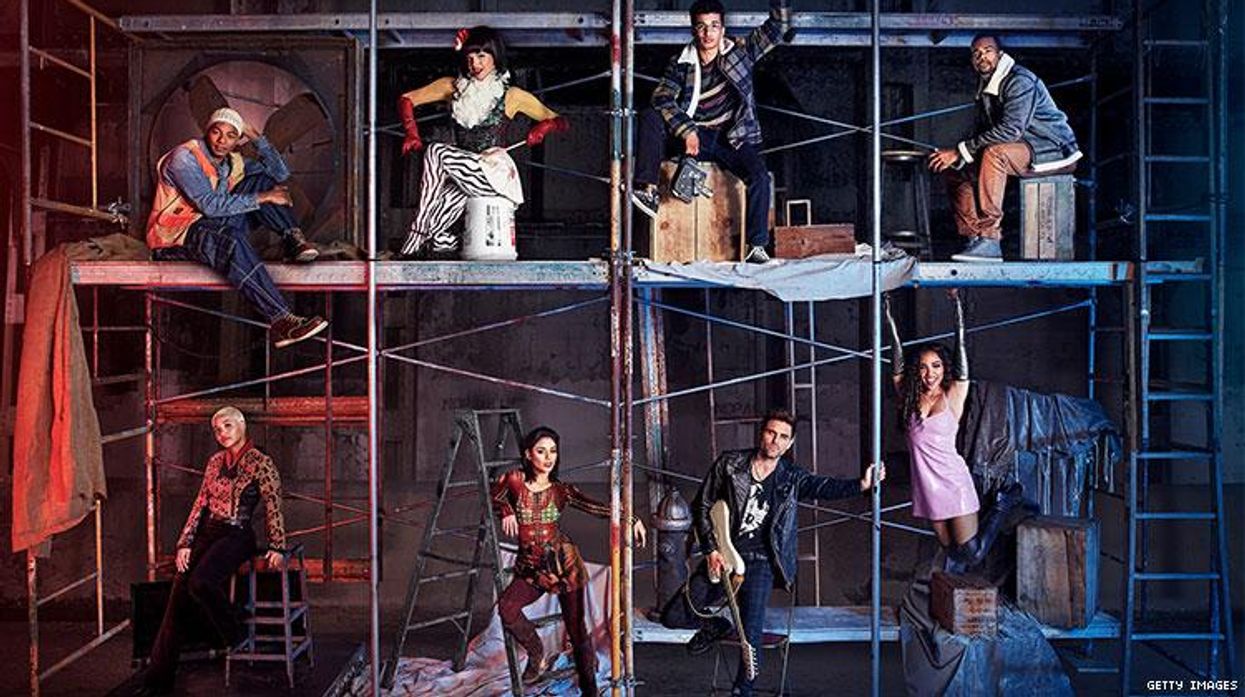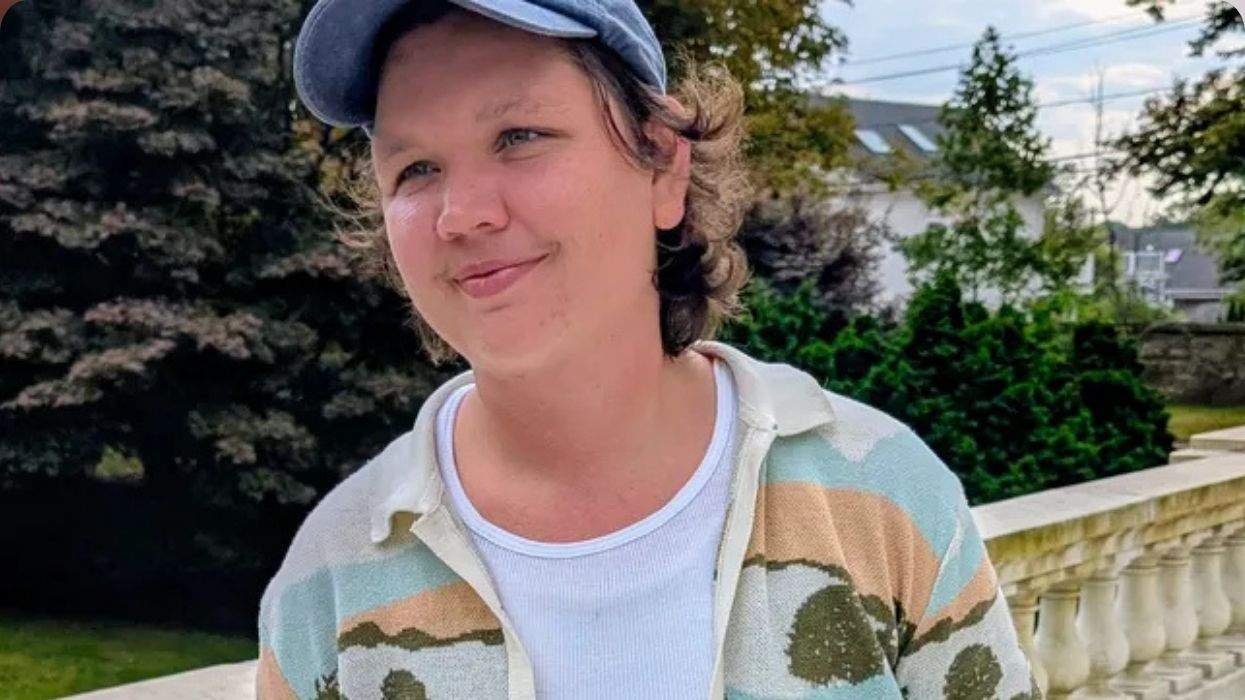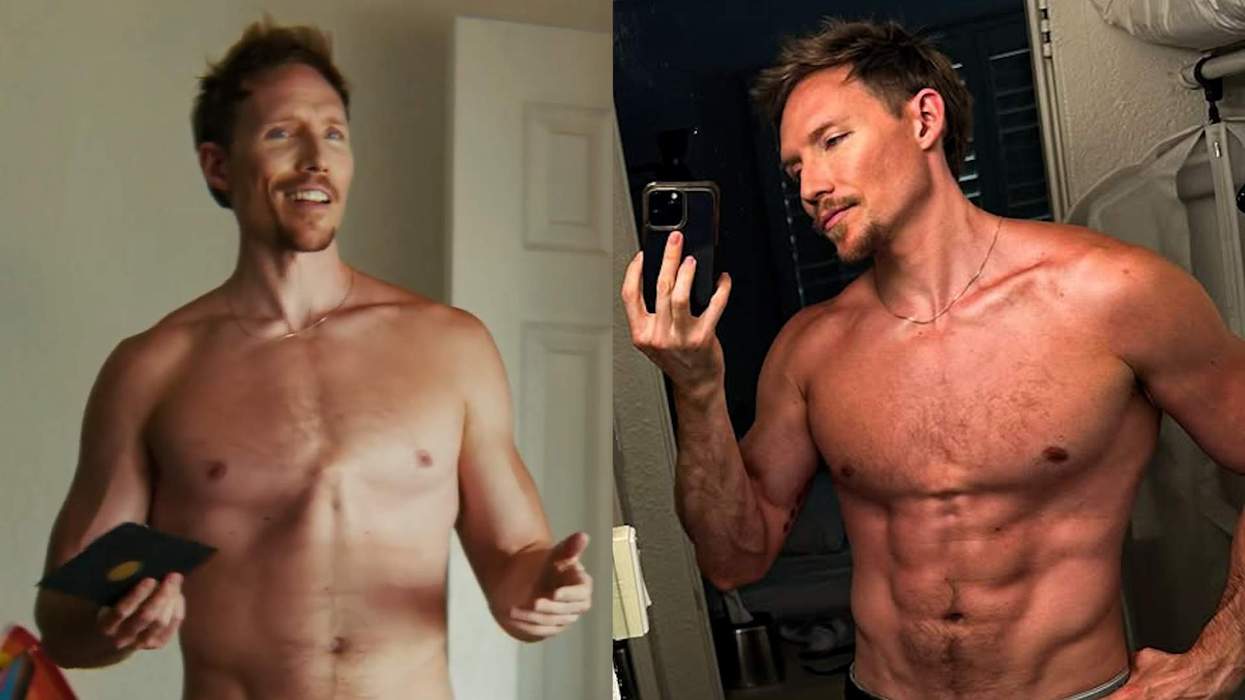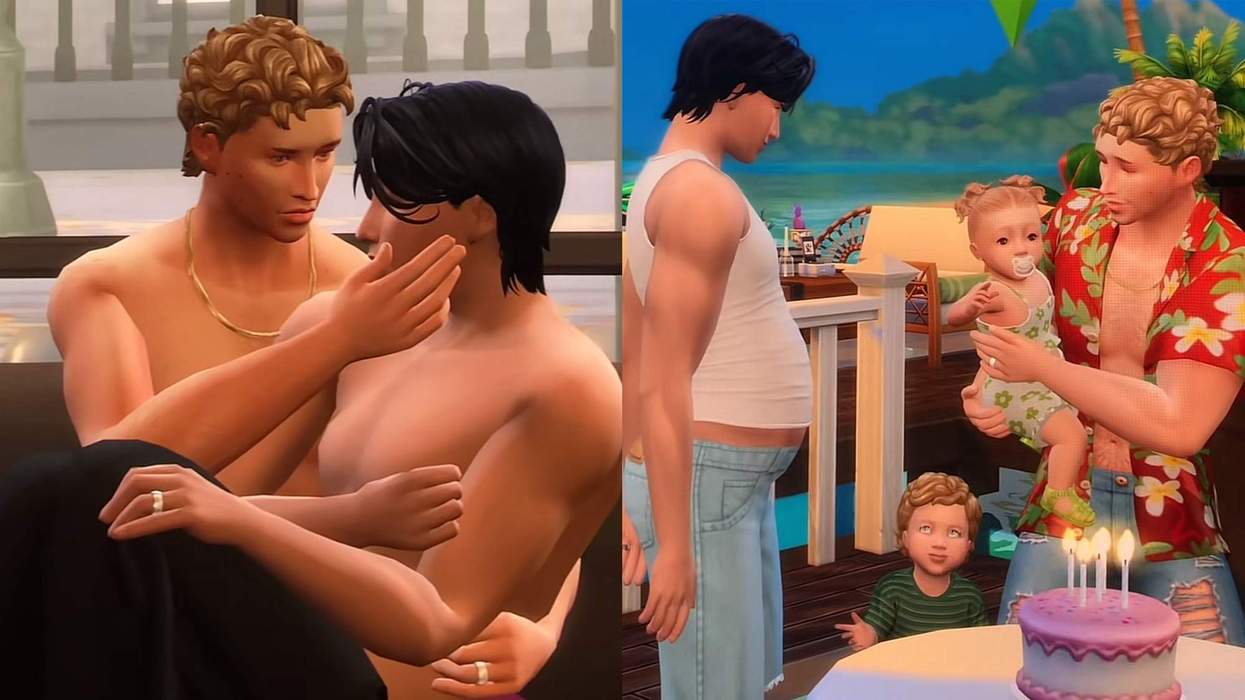Just as seasons change, so does "Seasons of Love."
Easily RENT's most recognizable tune, "Seasons of Love" underwent a huge makeover as it transferred from the stage to America's television in the live musical adaptation of RENT on Fox.
Usually staged as a concert performance with the show's stars singing tingle-inducing riffs underneath individual spotlights, the number is fundamentally altered and takes place in the HIV/AIDS support group that acts as one of the musical's throughlines.
The factors behind the change are two-fold: this is the first time a stage production of RENT will be broadcast live in people's living rooms and the fact that the context for the AIDS epidemic is much different from the time and place of the musical's New York City debut in 1996. When RENT debuted, audiences were not far from the epidemic's epicenter and the streets the characters walked. Highly active antiretroviral medication, which would turn the tides of AIDS epidemic, were only a few months away.
In the live adaptation, the number begins with the character Steve, played by Emerson Collins, telling everyone else he just got some "discouraging news" about his health. Because this live RENT adaptation has cameras and close-ups, viewers will see Steve's health status change over the course of the show, including his face being covered in lesions from Kaposi's sarcoma, a common AIDS-related illness in the epidemic's early days.
"RENT was so revolutionary and subversive, it was almost dangerous in the context of musical theater -- and in the best way possible it's not that now," Collins tells Out in a phone interview. Because the context is so different for newer audiences, the reworked number "really makes it impactful for a young generation whose experience with HIV is either PrEP or as a chronic condition to show them the piece of our history when that was not the case."
On stage, the number opens act two to underline the show's themes as the story shifts from the previous act's Christmas Eve timeline and takes us onwards, which covers the rest of the signature 525,600 minutes mentioned in the song. The 2005 film moved the song to the very opening of the film, probably because there'd be no time in the middle of a film's narrative to pause and reflect on love.
Shifting the song to a support group setting brings to the surface an aspect of the lyrics that has always been there, but may have been understated in previous reprisals. Seen in the context of a support group, lyrics about mundane things like measuring your life in "cups of coffee" take on a new meaning. Rather than feeling like mere pondering from the show's main characters, the song becomes "a directive," Collins says, "to find those little moments in the life you have left."
While an interconnected web of friends is at RENT's heart, it also centers on the romantic love shared by three couples: Mimi and Roger, Maureen and Joanne, and Angel and Tom. These three couples dominate the show's various storylines, so much so that "Seasons of Love" often falls victim to misinterpretation as a call to find romance. But the live version insists on a different kind of love at its center.
"It speaks to the chosen family, to finding your tribe," Collins says. "It's about the people you find, and finding a place to talk about the fear and the stigma and the pain and the mantras to get through the next day, the next moment, the next month."
It's a refreshing re-framing of typical AIDS narratives, as well. Hollywood often favors stories with an individual "hero" at its center and AIDS narratives on screen -- Dallas Buyers' Club or Philadelphia, for example, hew close to this structure. Even How to Survive a Plague, though leaps and bounds better in terms of its historical accuracy, reduced the diverse several-hundred person membership body of ACT UP to the actions of five white men. Many smaller films focus on the communal reality of the AIDS epidemic -- 120 BPM, United in Anger -- but those films don't always find the same audience as the more Hollywood-ready representations of AIDS that center one hero.
According to Collins, the reworked idea was communicated to him during his audition. Michael Greif, the stage director of the show and director of the original Broadway musical, re-envisioned it because of the change in medium. He also changed the name of the support group leader to Cy, named after a real woman who led a group the show's meeting is based on.
While RENT as a show has a complicated history, it remains a powerful idea that America, a hostile environment to those living with HIV during the epidemic's heyday, would be ready to invite them into their living room via primetime broadcast television. The medium, Collins says, is just the right place to tackle the issue.
"Television allows for big moments to feel big but for small moments to feel small and to acknowledge what a small moment can do in a way you can't do in the theater," Collins says. "It celebrates the best of both."































